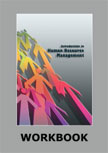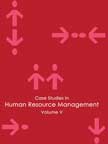Succession Planning at Ranbaxy - Family Drama, Corporate Style
|
|
ICMR HOME | Case Studies Collection
Case Details:
Case Code : HROB057
Case Length : 18 Pages
Period : 2000-2004
Pub Date : 2004
Teaching Note :Not Available
Organization : Ranbaxy
Industry : Pharmaceuticals
Countries : India
To download Succession Planning at Ranbaxy - Family Drama, Corporate Style
case study
(Case Code: HROB057) click on the button below, and select the case from the list of available cases:

Price:
For delivery in electronic format: Rs. 500;
For delivery through courier (within India): Rs. 500 + Rs. 25 for Shipping & Handling Charges
»
Human Resource, Organization Behavior Case Studies
» HRM Short Case Studies
» View Detailed Pricing Info
» How To Order This Case
» Business Case Studies
» Area Specific Case Studies
» Industry Wise Case Studies
» Company Wise Case Studies

Please note:
This case study was compiled from published sources, and is intended to be used as a basis for class discussion. It is not intended to illustrate either effective or ineffective handling of a management situation. Nor is it a primary information source.
Chat with us

Please leave your feedback

|
|




<< Previous
Excerpts
What Happened Behind the Boardroom Doors?
|
When Brar took over as Ranbaxy's MD & CEO, the company did not have any family
representation on the board. It was truly a company managed by professionals.
However, by the beginning of the 2000s, the Singh family reportedly decided to
take control of the firm.
According to the media, Bhai Mohan Singh had been pressing the company board to
elevate Malvinder Singh to the board of directors. The disagreements over
Ranbaxy's international expansion strategy between Brar and the family were
common knowledge by now. Sources within the company denied that there were any
disputes, stating that Brar's decision to leave was an independent one.
|

|
Reportedly, he had revealed his retirement plans in 1997 itself.
Brar had said that he would retire in 2002, after completing 25 years with
Ranbaxy. However, analysts felt that he could have easily renewed his term (due
to expire in July 2004), as he had seven more years to go before he would have
to officially retire from the company. That he chose not to do so, was seen as
an indication of something being amiss.
However, Brar maintained that he wished to leave the company as he had fulfilled
his responsibilities successfully. He added that he now wanted to look at other
opportunities. He said, "Having fulfilled my role in the company, I would like
to devote my time to other pursuits in the next 10-15 years of my working life.
I would therefore not like to renew my appointment as the CEO and Managing
Director upon expiry of my current term. In the meanwhile, I would do my best to
ensure a smooth transition in favor of a successor in the best interest of the
company."...
Leadership Challenges for the Future
Company watchers believed that the real effect of the top management changes
at Ranbaxy would be felt only when Tempest's tenure came into effect from
July 5 2004. An analyst commented, "Brar is expected to continue for the
next six months. I think he would do his best to ensure a smooth transition
in favor of his successor. The changes will be seen only when Tempest takes
over.
|
|
Tempest is expected to continue till Malvinder Singh is groomed to
done the mantle. Brar has already put in place a robust team and set
the vision of making Ranbaxy a $2 billion company by 2007."
Under the leadership of Tempest, Ranbaxy planned to focus on HR
planning and put in place improved motivation, hiring and training
programs. Speaking about the immediate steps he would take during
his tenure, Tempest said, "We, and I in particular, am going to
spend a lot of time in the HR activities and that is the area we
want to get better and better and we need good products with good
people."... |
Exhibits
Exhibit I: Succession Planning - As Practiced at a Few
Leading Companies
Exhibit II: Ranbaxy - Major Milestones
Exhibit III: Brar's Career Growth at Ranbaxy
Exhibit IV: Ranbaxy - Ten Year Financial Highlights (1993-2002)
Exhibit V: Dr Brian Tempest - A Brief Profile
Exhibit VI: Malvinder Mohan Singh - A Brief Profile
|
|










